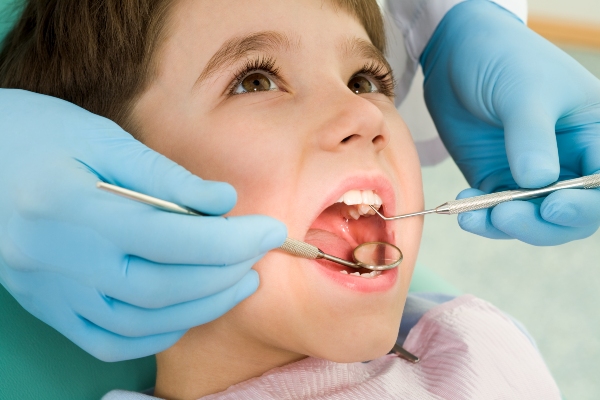 A dentist might recommend fluoride treatment for a child for several reasons. The most common use of fluoride treatments in pediatric dentistry is to protect teeth against decay. A fluoride treatment is inexpensive and typically completed in minutes. Many dentists perform them routinely after cleaning treatments to keep their patients' teeth healthy.
A dentist might recommend fluoride treatment for a child for several reasons. The most common use of fluoride treatments in pediatric dentistry is to protect teeth against decay. A fluoride treatment is inexpensive and typically completed in minutes. Many dentists perform them routinely after cleaning treatments to keep their patients' teeth healthy.
Interesting facts about fluoride treatment
Let us take a look at some interesting facts about fluoride treatment you might not be aware of:
1. Fluoride can reverse tooth decay
You may be surprised to discover tooth decay is reversible, but fluoride treatments are that powerful. Tooth decay results from oral bacteria making acids that destroy teeth. Decay takes place in different stages, and the first stage, known as the demineralization stage, can be reversed with fluoride treatment.
Unfortunately, tooth decay is challenging to detect on your own during this stage, which is why regular dental checkups are essential. A dentist is more likely to catch the decay during their examinations so it can be reversed before permanent damage sets in.
2. Fluoride treatments can help kids who grind their teeth
If your child grinds their teeth, they risk developing enamel damage and gum disease. Fluoride treatment can help to protect their teeth against this type of damage.
3. Fluoride treatments make teeth more resistant to staining
If you are concerned about your child's teeth becoming stained, a fluoride treatment can help. Fluoride makes the tooth enamel more resistant to staining from foods and drinks. It also helps restore teeth's structural integrity after teeth whitening treatments. Whitening teeth involves using chemicals like hydrogen peroxide that weaken enamel.
4. Fluoride treatments can reduce the risk of cavities
Fluoride effectively reduces the risk of cavities because it helps remineralize the tooth enamel. It helps replenish the minerals lost when teeth are exposed to acidic foods and drinks. Fluoride also helps to reduce oral bacteria in the mouth, which can lead to cavities.
5. Fluoride treatments are safe
Fluoride treatments are safe for both children and adults. The American Dental Association (ADA) recommends fluoride treatments for children at a high risk of developing cavities. Fluoride is a naturally occurring element found in water, food, and soil.
While too much fluoride can be harmful, the ADA says it is very difficult to overdose on fluoride because it is not absorbed well by the body. Fluoride toxicity only occurs when someone swallows large amounts of fluoride, which is rare.
The process of getting a fluoride treatment
Fluoride treatments are quick and easy and can be performed at the dentist's office or home. The dentist will use a small brush to apply a fluoride gel, foam, or varnish to the teeth. The gel or foam is usually left on the teeth for one to four minutes before being rinsed off.
The varnish is left on the teeth for longer, typically taking about 30 minutes to harden. Once it hardens, you can eat and drink as usual. Fluoride treatments are typically performed every three to six months.
Protect your child’s teeth
Fluoride treatments are a quick and easy way to prevent cavities and keep your child's teeth healthy. This naturally found mineral is safe and effective for protecting teeth. Call or stop by our Manvel clinic to set up an appointment.
Request an appointment or call Manvel Pediatric Dentistry at 832-645-2848 for an appointment in our Manvel office.
Related Posts
Dental injuries can be common during childhood, but prompt treatment from a pediatric dentistry professional can help restore your child's smile. It is important to have chipped, cracked, broken, or knocked-out teeth evaluated by a dentist, even if the patient is a child and only their baby teeth are affected.There are many types of dental…
One of the goals of pediatric dentistry is to make sure kids understand the value of oral health. This is possible with the help of parents or guardians. First-time parents can consult the pediatric dentist about what to do. If you want to know how to teach your kids proper oral hygiene habits, here are…
Dental injuries are relatively common in younger children. Many parents wonder if pediatric dentistry treatment is necessary, especially when it comes to baby teeth. However, many of these types of injuries require prompt evaluation from a dentist, even if the damage seems minor and there is no pain. Failing to have your child evaluated quickly…

